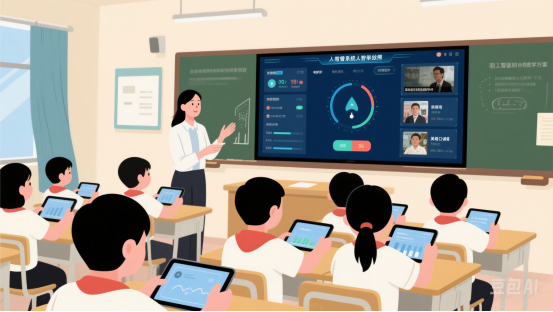
As artificial intelligence changes industries across China, its powerful role in education is creating fair chances for students everywhere. From busy cities to faraway mountain villages, AI tools are transforming classrooms and reducing the education gap between cities and rural areas.
In Guiyang, Guizhou Province, English teacher Zeng Xing has seen big improvements since using a smart classroom system. During class, students answer questions on tablets, and an AI screen shows their answers right away. By studying the data, the system helps Zeng find where students struggle and create focused lesson plans. “It works much faster than old ways,” she says. The AI also helps students practice speaking English using clips from movies, news, and poems. It checks their pronunciation and builds their confidence.
In places like Guizhou, where mountains and poor roads make it hard to share resources, AI helps balance opportunities. Huang Hui, the school’s principal, says AI brings high-quality materials to rural schools, letting village students “learn side by side” with city students.
AI isn’t just for school subjects. At Tsinghua University Primary School, students use smart sports tools during breaks. By waving their hands, they turn on sensors that track how long and how often they exercise, mixing fun with fitness.
Colleges are also using AI. Schools like Renmin University use tools like the AI helper DeepSeek to speed up research. “It works like a round-the-clock research helper,” says staff member Qian Minghui, explaining how it quickly analyzes data and connects researchers. Professor Wang Lei from Beijing Normal University adds that schools should lead in using new tech to train skilled graduates.
China’s government is pushing AI education. Starting this fall, Beijing schools will teach required AI classes — eight hours yearly — to build students’ digital skills. By 2025, a national plan will guide schools to prepare students for a tech-driven world.
Though AI helps greatly, experts warn about risks like data safety. Tang Liang, an education researcher, says schools need clear rules, tech monitoring, and ethics lessons to protect privacy and prevent cheating.
奇速英语 原创编写 版权所有 侵权必究! 每日更新 个性化阅读 英语飙升!






 更多优质学习内容
更多优质学习内容



